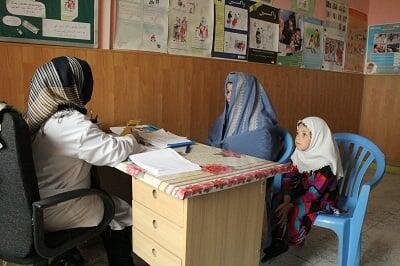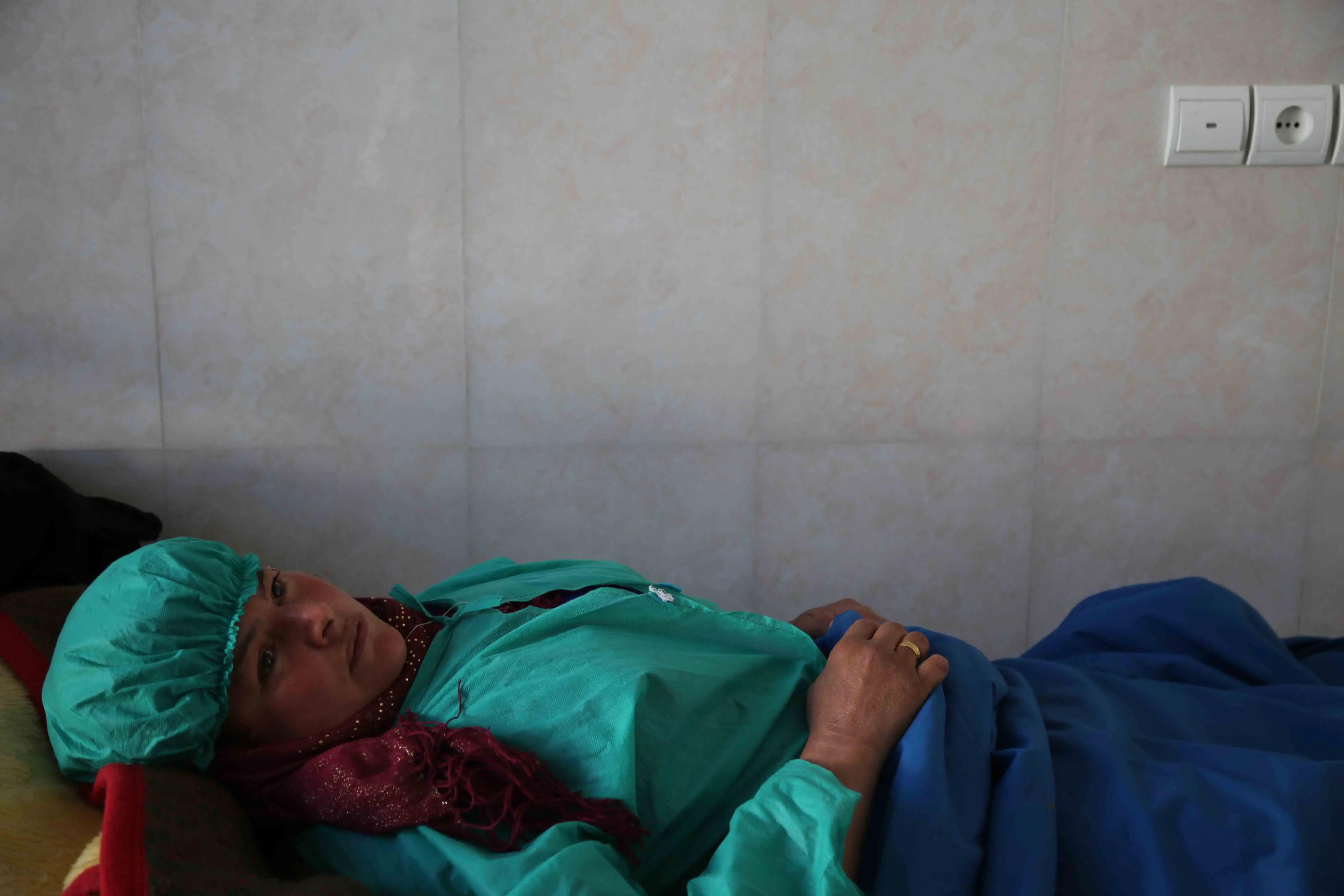"My husband and I decided to use contraception because for the moment we have enough children", says Ramzia. She is 32 years old and a mother of three sons which she is very proud of. She leaves in the Northern city of Mazar i Sharif, in Balkh province, and she is visiting the Family Planning Unit at Balkh Hospital for the second time.
"I want to give my sons the best education and I can't do this when I have a lot of children to take care of. Maybe we will decide to have more children later, but for now it's enough", explains Ramzia. "The overall security in the country plays also a role. How can I raise a lot of children in a country that is at war? It would not be fair for the child."
Her preferred method of contraception is the injection. "For me this is the most convenient method. One injection lasts for three months. After three months I will come back and take the next shot", says Ramzia.
Injectables are the most popular method of contraception in Afghanistan. According to the Afghanistan Multiple Indicator Cluster Survey 2012, ten percent of married women choose this contraceptive. Other commonly used methods are the pill (6 percent) and male condoms (1 percent).
Sajia shares the same opinion as Ramzia. She is also a mother of three. "Nowadays it's difficult to raise a lot of children," explains Ramzia. "Giving birth to children is one thing but giving them a good upbringing and education is something different. Parents want their children to be their pride and that requires a lot of time."
In spite of Sajia's option, family planning is not a very common practice in Afghanistan. Despite the fact that 90 per cent of women in reproductive age know about at least one contraceptive method, only 22 per cent of married couples use a modern method of contraception in Afghanistan. Among the main reasons for a low level of usage is the misinterpretation of the Islamic religious doctrine regarding family planning.
"In Afghanistan, people wrongly believe that family planning and birth spacing is forbidden by Sharia law, and this misconception highly contributes to the gap between knowledge and practice of family planning", explains Dr Abdul Malik Faize, Reproductive Health Officer at UNFPA Afghanistan.
The United Nations Population Fund, UNFPA, trains service providers of family planning units such as the one in Mazar. The Fund also supplies government health facilities with family planning methods which are not otherwise supported by donors through a long term agreement with the Ministry of Public Health.
To promote family planning in Afghanistan, UNFPA seeks the cooperation of religious leaders. Through religious conferences, publications and direct advocacy, UNFPA works with key religious leaders, building on their statements of support for family planning.





